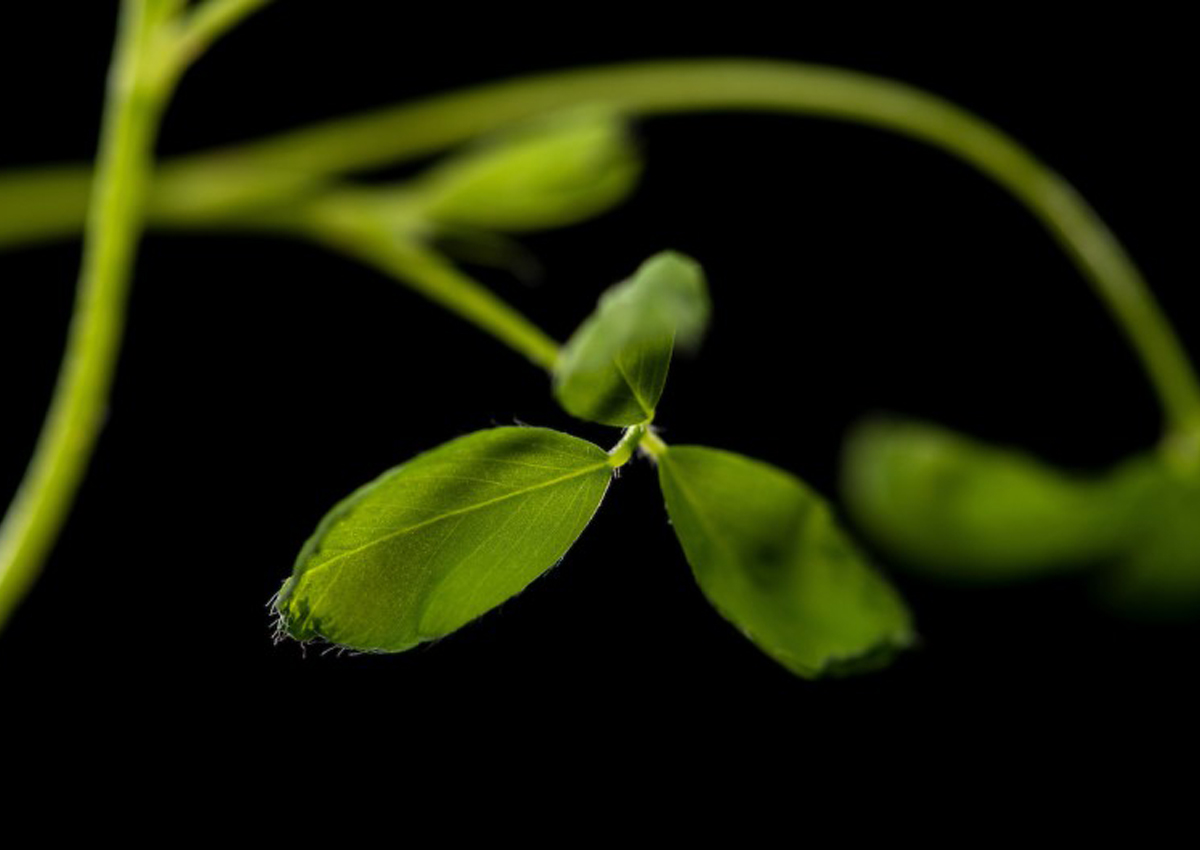
Scientists Discover Way to Make Crops Grow in Salty Soils
September 25, 2019| |
Scientists from Brigham Young University (BYU) have successfully inoculated alfalfa with salt tolerant bacteria, a breakthrough in the fight to reverse falling crop yields caused by increasingly salty farmlands around the world.
Led by Brent Nielsen, professor of microbiology and molecular biology, the BYU research team used bacteria found in the roots of salt tolerant plants to successfully inoculate alfalfa plants against overly salty soil. According to Nielsen, they took the roots of the salt tolerant plants, ground them, and grew the bacteria in the lab. They were able to collect more than 40 different bacteria isolates, some of which tolerate ocean-level salt content.
The scientists found two bacteria isolates, Halomonas and Bacillus, that could stimulate plant growth in the presence of 1 percent sodium chloride (salt), a level that significantly inhibits the growth of uninoculated plants. This breakthrough is significant as soils in some areas in China, Australia, and the Middle East have grown increasingly salty, as well as major farmland in the southwest United States.
For more details, read the article in BYU College News.
| |
You might also like:
- OsNCED5 Gene Controls Salt and Water Stress Tolerance in Rice
- Salt Tolerant Rice Variety Developed in India
- Biotechnology with Salinity for Coping in Problem Soils
Biotech Updates is a weekly newsletter of ISAAA, a not-for-profit organization. It is distributed for free to over 22,000 subscribers worldwide to inform them about the key developments in biosciences, especially in biotechnology. Your support will help us in our mission to feed the world with knowledge. You can help by donating as little as $10.
-
See more articles:
-
News from Around the World
- Nigeria Stresses Importance of Biotechnology for Food Security
- Study Opens Door to Flood Resistant Crops
- Scientists Discover Way to Make Crops Grow in Salty Soils
- Adoption of GE Corn, Cotton, and Soybeans in the U.S. Close to Saturation, USDA-ERS Reports
- Biologists Identify Six Genes in Maize Responsible for Production of Plant Antibiotics
- Safety Assessment of GM Crops Completed in Korea
- Bt Brinjal Technology Boosts Yield, Reduces Pesticides in Bangladesh, IFPRI Reports
- Most Complete Potato Genome Sequence Published
-
Research Highlights
- Analysis of Expression Profiles of Nuclear Factor-Y Genes in Cassava
- Hydrophobic Forces, Not H-Bonds, Bind DNA Together
-
Plant
- Engineering Broad-Spectrum Bacterial Blight Resistance in Rice Using CRISPR-Cas9
- Scientists Use CRISPR to Develop Apples Resistant to Fire Blight
-
Read the latest: - Biotech Updates (December 17, 2025)
- Gene Editing Supplement (December 17, 2025)
- Gene Drive Supplement (February 22, 2023)
-
Subscribe to BU: - Share
- Tweet

